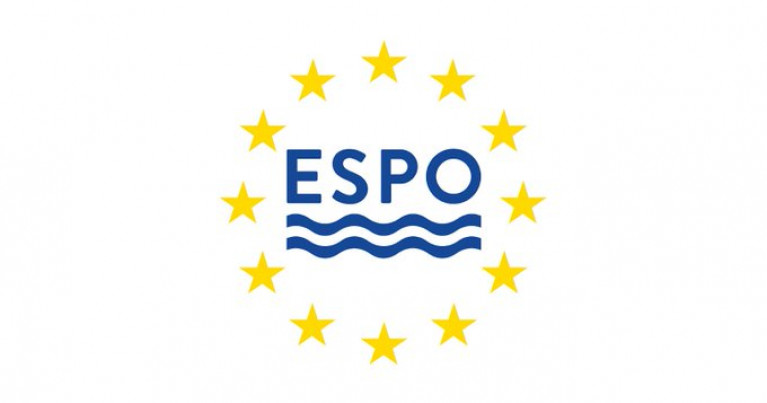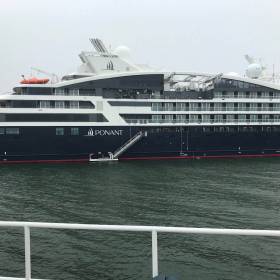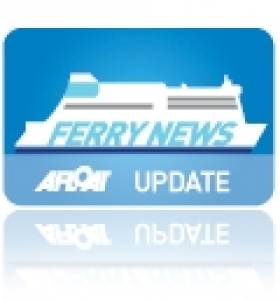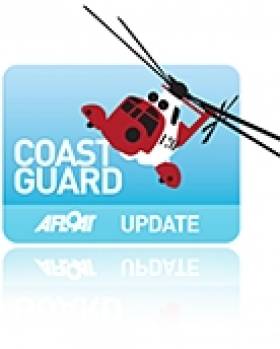Displaying items by tag: Transport Minister
ESPO Welcomes EP-TRAN Recommendations On Ports, Short-Sea Shipping & CEF to Decarbonise
The European Parliament Transport and Tourism Committee (TRAN) today will discuss the draft own-initiative report on technical and operational measures for more efficient and cleaner maritime transport.
The aim of MEP Karima Delli, Chair of the TRAN committee and rapporteur for this file, is to propose a roadmap at EU level that sets out specific technical (design) and operational measures to limit emissions from the maritime sector.
The European Sea Ports Organisation (ESPO) believes that the draft report of Ms Delli contributes in a positive way to the reflection on ways to make maritime transport cleaner and more efficient and the role of ports in that.
Overall, ESPO particularly values the recognition of the key role played by maritime transport and ports in the EU economy. Europe’s seaports welcome the rapporteur’s call to reserve more budgetary resources within the Connecting Europe Facility (CEF) for delivering a modal shift and for achieving the goal of decarbonisation, as well as the demand for the Commission to promote short-sea shipping, on the same basis as rail and inland waterways, as a sustainable alternative to goods and passenger transport by road and air within the Green Deal framework.
The proposal to simplify the access criteria of Motorways of the Sea, in particular for links between ports outside the core network, and by providing significant financial support for maritime links as an alternative to land transport, is also a very positive step forward.
Furthermore, ESPO supports the proposal to correct market distortions created by the current taxation regime applied for renewable energy sources in the Energy Taxation Directive. This is in line with ESPO’s demand to make all clean fuels and energy sources permanently exempt from taxation. ESPO also supports the earmarking of revenues generated by a maritime market-based measure towards funding research and innovation for decarbonising European maritime transport and ports. In addition, ESPO agrees with the proposal to encourage cooperation between all stakeholders with the aim of decarbonising ports.
“We really appreciate that Ms Delli has taken the time and effort to consult with the port sector, and we believe that this draft report is the product of these efforts. Ms Delli clearly understands the crucial role ports are playing, and recognises that ports and maritime transport can positively contribute to reaching the Green Deal ambition. Very rightly, the rapporteur stresses that ports can be hubs for the production, distribution and transport of renewable-energy fuels. We look forward to the further debate in the European Parliament. We hope that the report can be further strengthened so that the Commission can put forward an ambitious but effective policy to come to cleaner and more efficient maritime transport in line with the Green Deal. There is no time, and no money to waste”, comments Isabelle Ryckbost, ESPO Secretary General.
In order to further strengthen the report, ESPO proposes to place greater emphasis on the need for a goal-based approach in the FuelEU Maritime Initiative, and to develop a supportive policy for the deployment and use of onshore power supply, whilst allowing for equivalent alternative solutions. Furthermore, ESPO backs a stronger support for coalitions between all maritime stakeholders, including energy providers, to develop the most effective pathways to the greening of shipping. ESPO also believes that the role of LNG as transition fuel should be better recognised.
The draft Delli report will be discussed in the TRAN committee today. The deadline for amendments is 6 November, and the report will be voted in plenary early next year. To find out more about ESPO’s views on the Green Deal, click here.
West Cork: Kinsale Wants Slice of the Cruise Ship Trade
The Southern Star writes, that Kinsale in Co. Cork and other harbour towns want a slice of the €50m cruise ship trade.
County mayor, Christopher O’Sullivan said: ‘West Cork’s extensive coastline and the fantastic facilities in our harbours make it a very appealing destination for sophisticated cruise clients.’
Fantastic indeed! Because just when Kinsale is about to lick its chops in expectation of the high-spending tourists (the ‘sophisticated cruise clients’), downsizing of the liner trade in Ireland is set to become a reality.
The number of liners berthing in Dublin is to be reduced to 80 – a cutback of 50% . Pulling no punches, the Dublin Port authorities explained the reason. It was all about ‘commercial pragmatism’ and the need to find space for the freight and container traffic in the wake of Brexit.
Indeed, Tánaiste Simon Coveney already has warned of the knock-on effect on tourism for Cork, Waterford, Belfast and other ports of call when Dublin limits access to cruise liners. The liners won’t be there to go to Belfast or Cork. As simple as that!
Not that our esteemed Transport Minister, Shane Ross, is worried. Much like Alfred E Neuman of Mad magazine, he described the crisis as ‘a temporary blip.’ The All-Ireland Cruise Ship Action Group, had a much more dramatic message: ‘Dublin’s catastrophic decision could devastate Irish tourism.’
To read more from the regional newspaper click here.
Dún Laoghaire Harbour Board to Meet Minister As Ferries to Holyhead End
#StenaDunLaoghaire - Dún Laoghaire Harbour Company are to meet Minister for Transport, Paschal Donohoe following confirmation by Stena Line to end its ferry service at the south Co Dublin port, writes The Irish Times.
The move marks the end of almost two centuries of ferry traffic from Dún Laoghaire to Holyhead and 20 years of the Stena Line-run service after its contract runs out on April 14th.
Mr Donohoe told Fine Gael TD Mary Mitchell-O'Connor he was aware the news would be a major disappointment to the community in Dún Laoghaire. He said he shared her disappointment at the end of an era. "I worked in Stena Line in Dún Laoghaire for two summers and have an understanding of how important the service is not only to Dún Laoghaire harbour but also to the broader community."
Ms Mitchell-O'Connor called for a taskforce to be established on the harbour's future. "We need to find solutions and stop dithering," the Dún Laoghaire Deputy said. She urged the Minister to consider the harbour as a location for an international diaspora centre.
For more on this story, click HERE.
As previously reported on Afloat.ie the DLHC are seeking other providers to operate a seasonal ferry service on the route.
Irish Coast Guard To Be Merged With Marine Survey Office
#Coastguard - The Irish Coast Guard is to be merged with the Marine Survey Office, as The Irish Times reports.
Cabinet approval has been granted for Transport Minister Leo Varadkar's reorganisation plans, which will see the creation of a new body - the Irish Maritime Administration - that would be responsible for both services.
The changes come a year after the publication of the 'value for money' report commissioned by the Department of Transport to identify where efficiencies could be achieved in Ireland's maritime services.
Among a series of changes intended to shore up the State's maritime safety strategy, the merger will also reportedly see coastguard radio staff reduced from three-man to two-man watches - although Minister Varadkar has denied there will be any staff shortages.
The Irish Times has much more on the story HERE.
Tit Bonhomme 999 Concerns Will Be Considered Says Varadkar
#TitBonhomme - Transport Minister Leo Varadkar says he will consider concerns over the handling of emergency calls relating to the Tit Bonhomme tragedy, as The Irish Times reports.
The minister commented after a meeting last week with the widow of the stricken boat's skipper Michael Hayes in Union Hall in West Cork.
Hayes and four of his five-man crew lost their lives when the trawler went down after striking rocks at the mouth of Glandore Harbour. The only survivor was Egyptian fisherman Abdelbaky Mohamed, who was able to swim to shore.
The recent inquest into the incident criticised the handling of 999 emergency calls from the fishing boat prior to its sinking, as it emerged that neither the Irish Coast Guard nor the Marine Casualty Investigation Board were aware that not one but two calls were made by crewman Kevin Kershaw.
It emerged during the inquest that the coastguard was only notified of the event on the second call, three minutes after the first.
Barrister Elizabeth O'Connel, who represented Hayes' widow Caitlín Uí Aodha at the inquest, described the dearth of details taken by the operator on the first call as "extraordinary".
Ireland's emergency call service, operated by BT Ireland from three locations, is currently under review by the Department of Communications.
The Irish Times has more on the story HERE.

































































